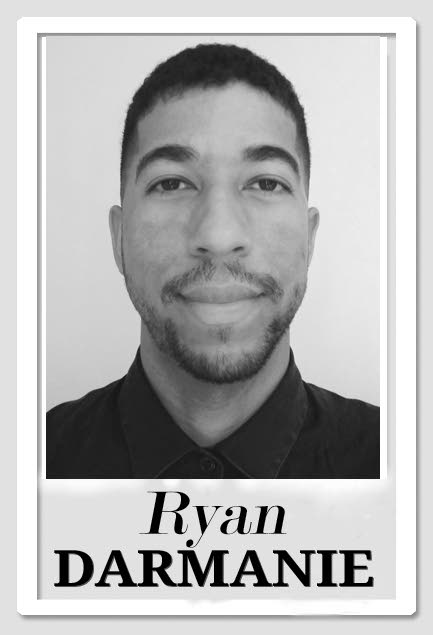Alternative views on covid19

On March 17, 2020, Dr John Ioannidis, professor of medicine, epidemiology, and statistics and biomedical data science, at the Stanford University School of Medicine penned a highly controversial opinion piece in Stat News, in which he dared to say that “Covid19, has been called a once-in-a-century pandemic. But it may also be a once-in-a-century evidence fiasco”, in which our response may be akin to “an elephant being attacked by a house cat. Frustrated and trying to avoid the cat, the elephant accidentally jumps off a cliff and dies.”
Ioannidis is not alone in questioning the seemingly unanimous worldwide governmental response to the situation. Other sceptical professionals include Michael Levitt, professor of structural biology at Stanford University and a 2013 Nobel Prize winner; Sunetra Gupta, professor of theoretical epidemiology at the University of Oxford; Dr John Lee, a retired professor of pathology; Beda Stadler, former director of the Institute of Immunology at the University of Bern in Switzerland; and Johan Giesecke, former chief scientist at the European Centre for Disease Control and Prevention.
Few doubt that we are in fact in a state of — arguably — unprecedented crisis, but the question is whether the calamity is a result of a virus, or our response to it.
The villainisation of and vitriol aimed at those who have dared to question the virus-induced, covid19 doomsday narrative is disturbing. In penning a dissenting opinion piece, Ioannidis, once hailed by the Atlantic Magazine in 2010 as perhaps “one of the most influential scientists alive”, whose “work has been widely accepted by the medical community” quickly became something of a pariah.
The same goes for the entire nation of Sweden, which pre-covid19 represented the very best in decision-making and governance to the political left. Their famous decision to forego a strict national lockdown has earned them the status of favourite punching bag of the liberal media. The latest being the surface-level analysis found in the New York Times article, Sweden Has Become the World's Cautionary Tale.
The lack of balance in the prevailing analyses is clear: great consideration for the dangers of a virus, little consideration for the dangers of disrupting societies and economies or on other factors that may explain viral spread and susceptibility of populations irrespective of government intervention.
Exactly how much mental energy I wish to devote to presenting the other side of the story in this column is yet, undecided. The claims of being “selfish”, “a granny-killer”, “more interested in economics than lives”, “a Trump-supporter” and the other tropes that have been thrown at any dissenters will likely follow. Tropes seemingly based on a surface level analysis of the situation, what is portrayed in the (seemingly infallible) liberal media, ideals of the moral superiority of preventing viral spread at all costs, political leaning, and selective amnesia to the reality of risk — which we all live with on a daily basis.
Obsessively delving into the vast repository of data and studies pertaining to covid19 has made one thing clear: we are not being told the entire story about covid19, and the political left — of which I am part of — is heading down a dangerous path of censorship, intolerance, and aversion to scientific inquiry. The latter being a frequent criticism aimed at the “anti-science” political right.
For now, what I will say is that I am not qualified to give medical-related advice. I am not a medical doctor, an epidemiologist, a virologist, or a public health specialist.
What I am is someone trained to look at evidence and viewpoints from a wide variety of fields of study — including public health — and make decisions that attempt to balance the competing concerns of specialist professions.
My fear is that people like myself are not at the decision-making table. We are being guided by specialists who by nature are hyper-focused on, and hyper-sensitive to, the dangers of one particular pathogen, while turning a blind eye to the other facets of this complex problem that have far-reaching socio-economic ramifications beyond the mortality and morbidity of those affected.
Two and a half weeks ago, I had the privilege of participating on a virtual discussion panel with two leading voices in my field that have greatly influenced my own thinking and work. I was reminded that urban planners have seen first-hand what happens when the approach to developing the built environment, itself an exercise in solving complex problems, is directed by specialist thinking.
The result is what we are living with today, suburban sprawl, which has its roots in public health fears of the dangers of living close together. Sprawl, in its entirety, is increasingly being shown to be a social, economic, and environmental nightmare — a result of short-sighted, reactionary decisions that will haunt us for a long time.
Of course, as we now know, public health concerns like the spread of infectious diseases, which were driving forces behind sprawl, have been eclipsed by the epidemic of chronic, non-communicable conditions like diabetes, obesity, and heart disease, which are greatly exacerbated by the physical inactivity resulting from a car-centric pattern of living. And, interestingly, conditions that are proven to render one many times more susceptible to infectious pathogens like the SARS-CoV-2 virus.
Ryan Darmanie is a professional urban planning and design consultant, and an avid observer of people, their habitat, and the resulting socio-economic and political dynamics. You can connect with him at darmanieplanningdesign.com or email him at ryan@darmanieplanningdesign.com


Comments
"Alternative views on covid19"